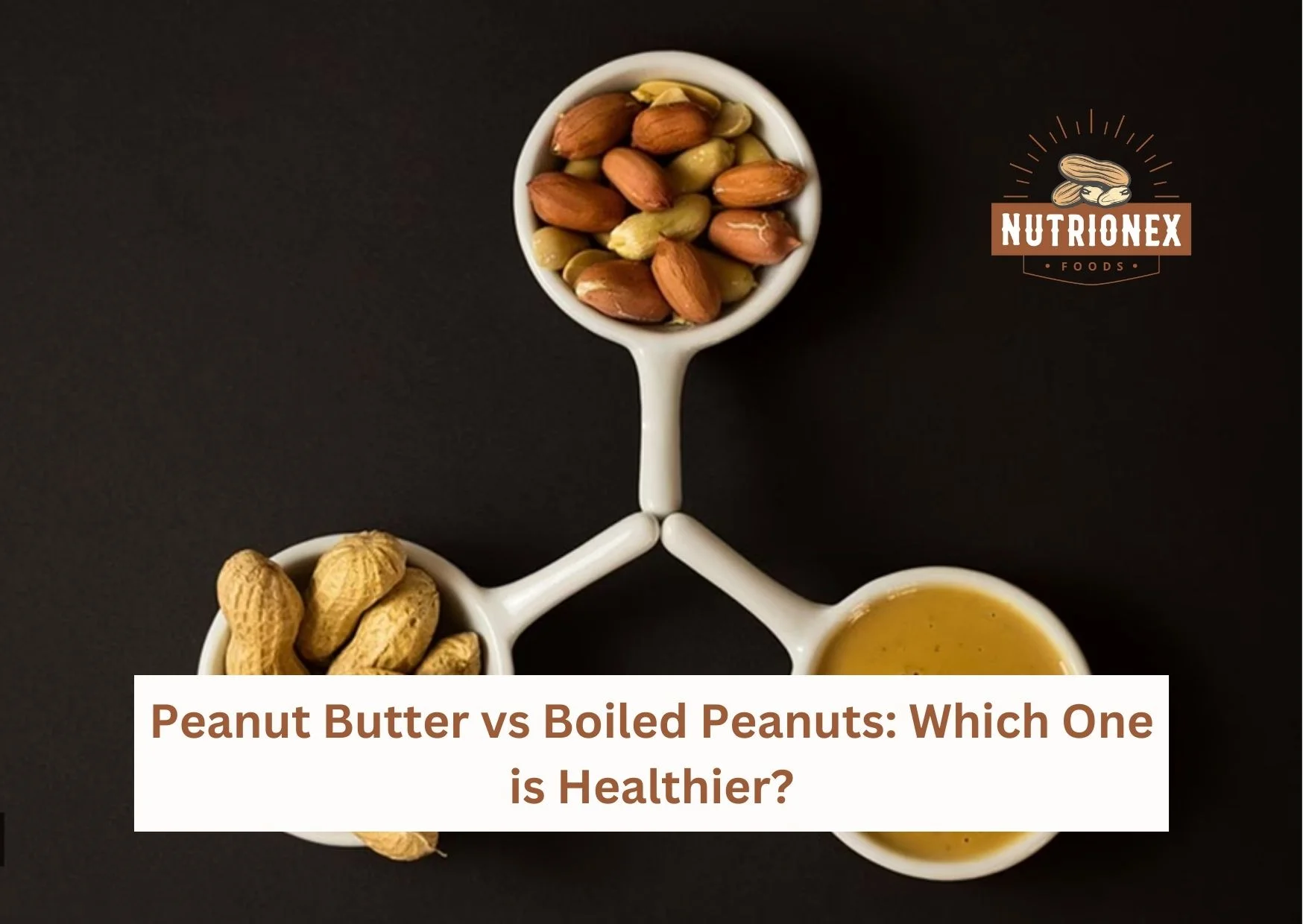
Peanut Butter Vs Boiled Peanuts: Which One Is Healthier?
Versatile peanuts exist across the globe in different forms which include peanut butter to boiled peanuts. The nutritious value between peanut butter and boiled peanuts creates confusion among consumers regarding their health benefits. This extensive blog discussion investigates the nutritional components and medical advantages as well as health risks between peanut butter and boiled peanuts so readers can determine their best selection.
Peanut Butter
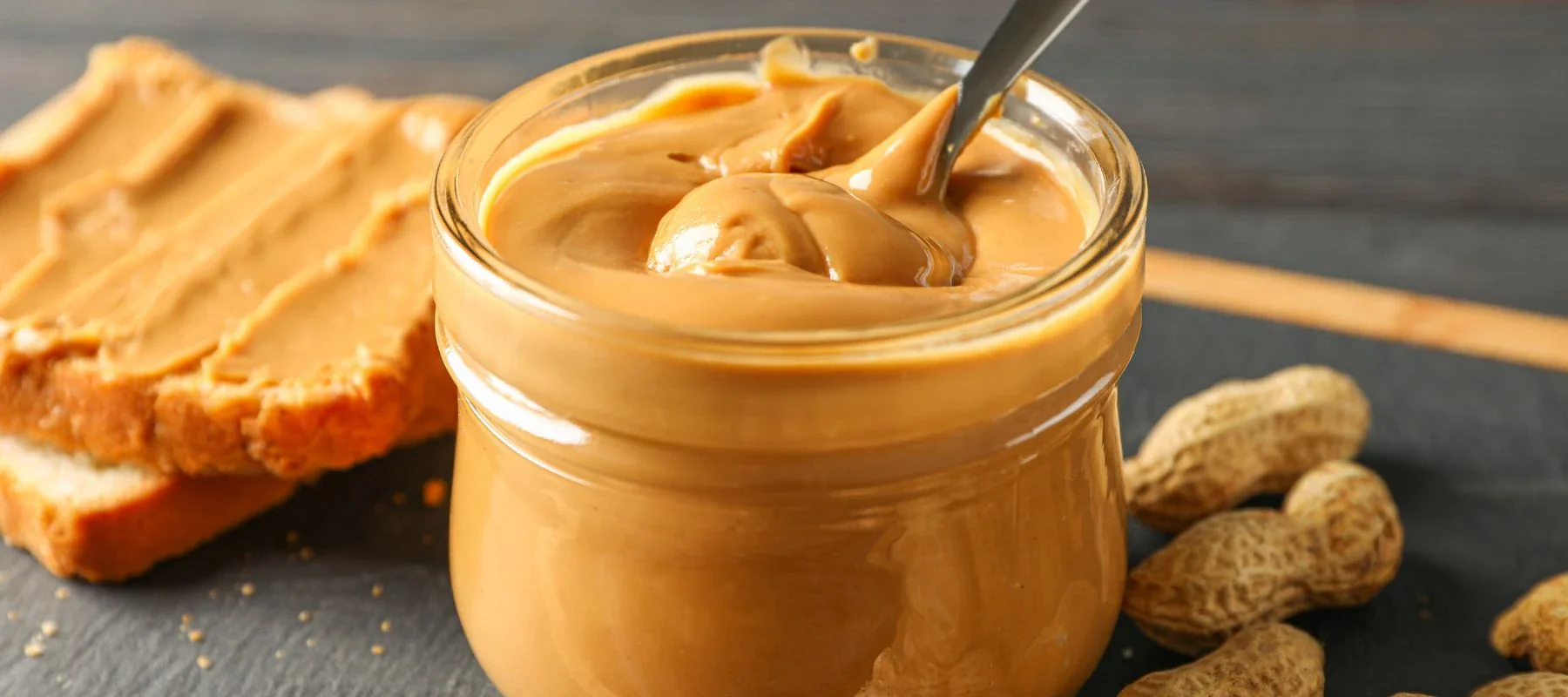
Peanut butter is a creamy spread made by grinding roasted peanuts. It’s a popular choice for sandwiches, smoothies, and snacks. Here's the nutritional profile of 2 tablespoons (32 grams) of peanut butter:
• Calories: ~190
• Protein: 8 grams
• Fat: 16 grams (mostly heart-healthy monounsaturated fats)
• Carbohydrates: 7 grams
• Fiber: 3 grams
• Sugar: 1 gram (natural sugar; added sugar varies by brand)
• Vitamins & Minerals: Rich in vitamin E, magnesium, potassium, and copper
The high-calorie content of peanut butter amounts to a nutritional food source. The food contains beneficial heart-healthy fats in addition to offering a sustained energy supply. Athletes together with fitness enthusiasts choose the protein-rich content to help them build muscles while assisting with post-workout recovery. Peanut butter contains dietary fiber which supports digestion and helps regulate blood sugar thus it serves as a beneficial food option for weight management and diabetes control.
Boiled Peanuts
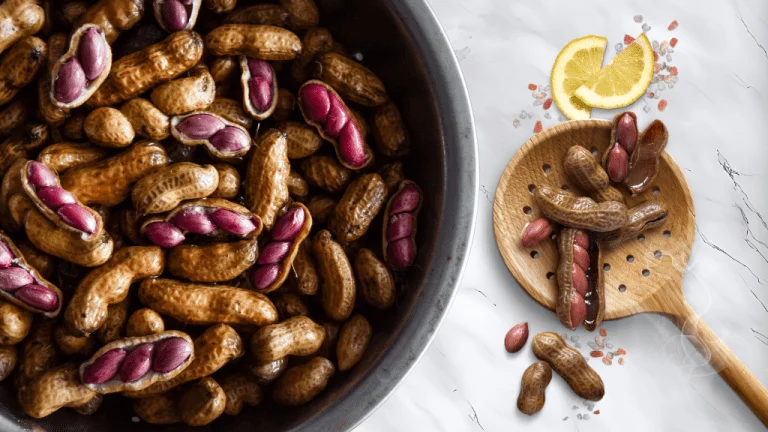
Raw or green peanuts become boiled peanuts after they are cooked in water supplemented with optional salt. Across the Southern United States, people consume these products as nutritious snacks. Here’s the nutritional profile of half a cup (80 grams) of boiled peanuts:
• Calories: ~286
• Protein: 12 grams
• Fat: ~6 grams (lower fat content compared to peanut butter)
• Carbohydrates: ~10 grams
• Fiber: 4 grams
• Sugar: 2 grams (natural sugar)
• Vitamins & Minerals: High in magnesium, phosphorus, folate, and antioxidants like polyphenols and isoflavones.
After boiling peanuts acquire more antioxidants whereas they contain fewer fats than peanut butter does. The calorie content in each portion remains lower when the peanuts are boiled without supplemental salt. Boiled peanuts are improved in flavor through boiling yet become simple to digest for various individuals. Eating boiled peanuts offers consumers a distinct mouthfeel which enhances their satisfaction when consumed as a snack.
Nutritional Breakdown: Peanut Butter vs. Boiled Peanuts
| Nutrient | Peanut Butter (2 tbsp) | Boiled Peanuts (½ cup) |
| Calories | ~190-200 kcal | ~90-100 kcal |
| Protein | ~8g | ~4-5g |
| Fat | ~16g (mostly healthy fats) | ~6g (lower fat content) |
| Carbohydrates | ~6-7g | ~7-8g |
| Fiber | ~2g | ~2-3g |
| Sugar | ~2-3g | ~1g (naturally occurring) |
| Sodium | Varies (depends on brand) | ~200mg (if salted) |
Both peanut butter and boiled peanuts offer distinct nutritional benefits, making the choice dependent on your health priorities.
Health Benefits Comparison
1. Peanut Butter
For many years peanut butter has established its position as one of the densest food sources supporting human health. Here are its primary benefits:
• Heart Health: Eating peanut butter provides monounsaturated fats that enhance your good cholesterol levels while decreasing your bad cholesterol levels. Following such a diet reduces the possibility of heart disease. The regular addition of nuts together with nut products through peanut butter makes people experience better cardiovascular health results according to research.
• Energy Boost: Before exercise the healthy fats together with protein and fiber help users maintain sustained energy levels as a perfect workout fuel. Athletic competitors utilize peanut butter because it supplies workout energy without creating sudden blood sugar fluctuations.
• Weight Management: The high-calorie content in peanut butter does not deter weight management because its protein and fat composition creates feelings of fullness. Moderate consumption of peanut butter aids weight control through its ability to minimize unhealthy food cravings while controlling appetite.
• Rich in Nutrients: Peanut butter contains vitamin E (an antioxidant), magnesium (important for muscle function), potassium (supports heart health), and copper (essential for red blood cell production). Nutrients present in peanut butter serve essential roles in maintaining overall health because they strengthen the immune system while supporting bone health.
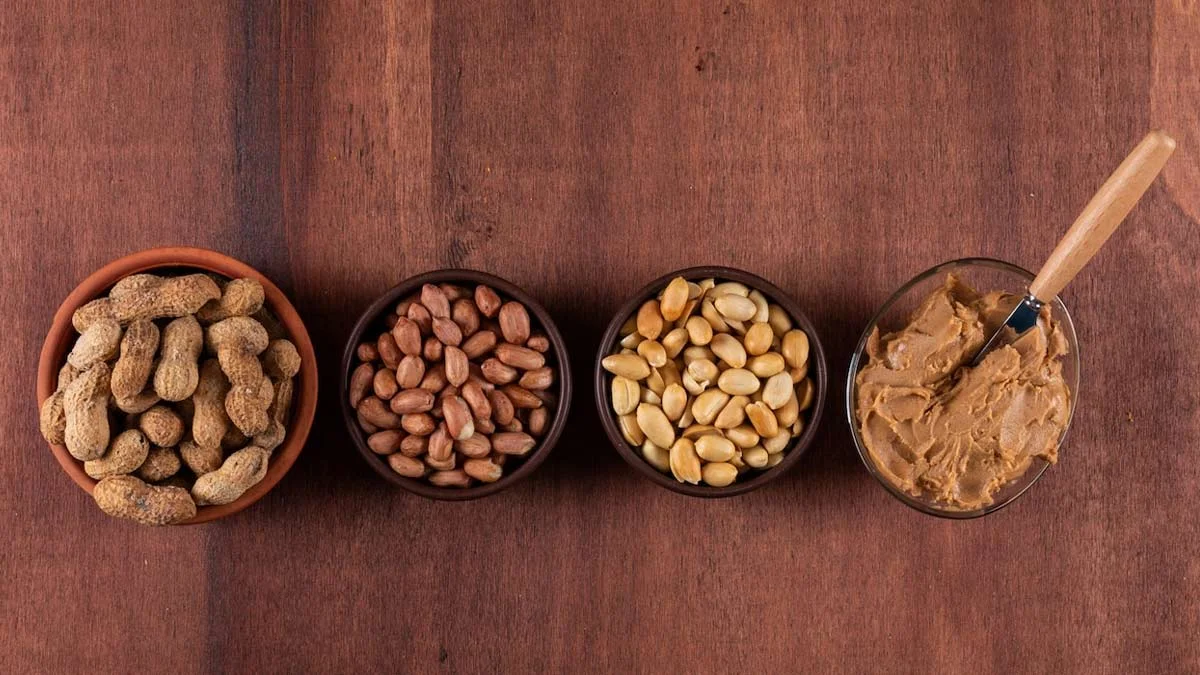
2. Boiled Peanuts
Boiled peanuts possess health benefits that make them stand apart from standard peanut products because of their unique preparation method
• Antioxidant Powerhouse: The boiling process makes peanuts more powerful in antioxidants because it enhances polyphenols together with isoflavone content. The compounds in boiled peanuts help neutralize dangerous free radicals along with inflammation processes which subsequently decrease the probability of cancer and diabetes development. Cells need antioxidants to stay healthy while they protect against damage caused by oxidative stress.
• Low-Fat Content: Boiled peanuts deliver fewer fats than peanut butter yet maintain similar essential elements including protein together with fiber content. The low-fat content of boiled peanuts gives people a nutritious substitute when they aim to eat fewer fats.
• Heart Health: Heart Health Benefits Arise From Boiled Peanuts Because These Nuts Lack Cholesterol And Have Magnesium And Folate Which Help Improve Blood Flow And Prevent Heart Disease. Such nutrients found in boiled peanuts help keep blood pressure levels steady and support heart function betterment.
• Gut Health: The fiber content within boiled peanuts stimulates digestive health because it helps maintain regular bowel movements. The human digestive system requires dietary fiber to function properly and constipation prevention is one of its advantages.
Potential Drawbacks
• When boiling peanuts with excessive amounts of salt in the cooking process the result becomes very high in sodium if one eats too many.
• Although peanuts boiled in salty water do not match peanut butter in terms of recipe versatility they provide an exclusive flavor profile that many individuals appreciate.
Which One Is Healthier?
The answer depends on your dietary goals and preferences:
Choose Peanut Butter
• Energetic foods rich in protein which also work well with different dishes constitute your ideal choice.
• The unique ingredient suits your requirements for smoothies together with sandwiches and snacks since it adds tasty notes along with nutritional content.
• Health-conscious individuals search for peanut butter because it provides heart-supporting fats while delivering the creaminess that attracts numerous people.
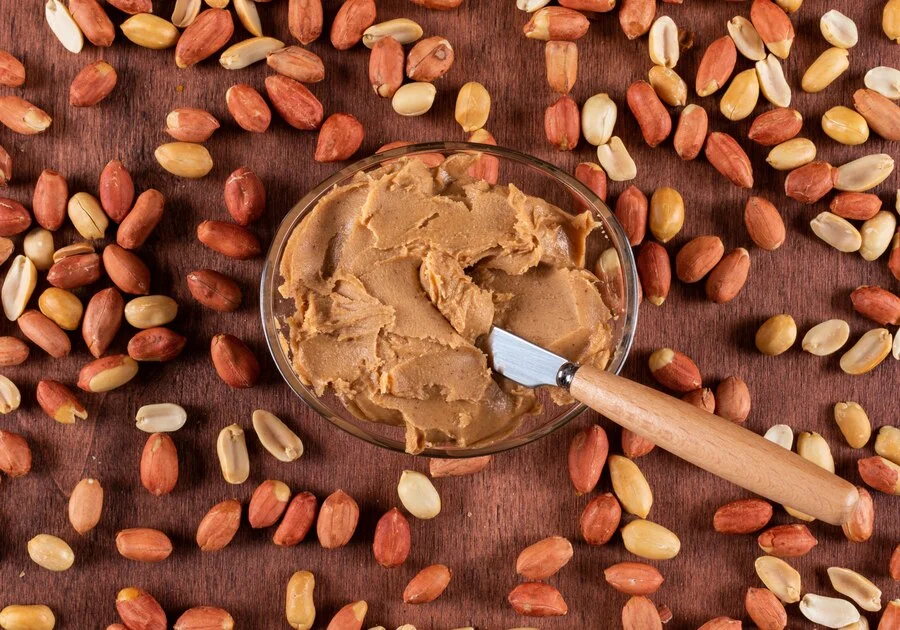
Choose Boiled Peanuts
• You should seek a light snack with many antioxidants because it delivers special taste profiles.
• The search is for nutritious food that helps digestive health and contains minimal calories.
• Your preferred food choices include whole ingredients and minimal packaging because they provide you with natural ingredients free from additives or preservatives.
Both boiled peanuts and peanut butter can create a healthy diet as long as they are consumed carefully. The advantage of boiled peanuts exists because they contain higher antioxidant quantities together with fewer calories compared to peanut butter.
Tips for Making Healthy Choices
For Peanut Butter
• Buying natural or organic peanut butter without added sugars or hydrogenated oils enables consumers to receive maximum health advantages.
• Read the product label to find peanut butter brands that contain peanuts along with salt as the only ingredients. The pure product contains no extra ingredients because you can verify its authenticity on the label.

For Boiled Peanuts
• Homemade boiled peanuts allow you to maintain desired salt levels while trying different spices including garlic powder or cayenne pepper which provides tasty flavor without sodium overconsumption.
• When boiling peanuts select fresh green peanuts instead of preservative-added packaged ones since fresh peanuts provide more nutrition and ideal freshness.
Final Thoughts
The nutritional value of peanut butter and boiled peanuts as consumed properly benefits healthy lifestyles. Boiled peanuts should be your pick if you aim for antioxidants alongside reduced fat content due to their nutrient-rich composition yet low-calorie and fat contents. Your meal preparation requires peanut butter if you want to combine protein content with nutritious fats which creates creamy spreads.
The combination of these peanut-based foods adds nutritional variety to your diet without compromising the nutritional value of these tasty options. You can gain their nutritional advantages through intentional peanut butter and almond butter consumption when you pair them with satisfying your desires.
